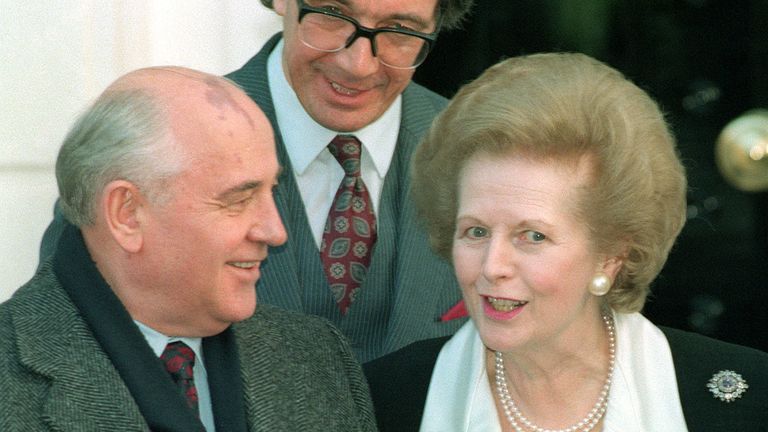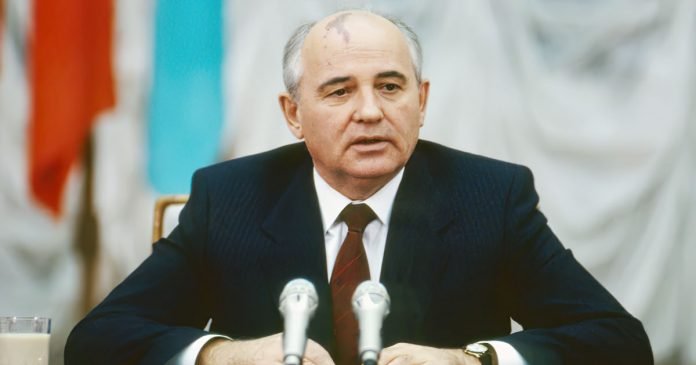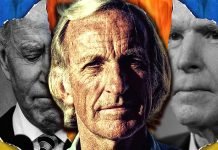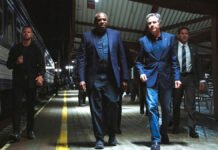Mikhail Gorbachev — the last leader of the former Soviet Union from 1985 until 1991 — died at 91.
Gorbachev died after a long illness, Russian state news agencies reported.
“Mikhail Sergeevich Gorbachev died this evening after a severe and prolonged illness,” the Central Clinical Hospital said, according to RIA Novosti Tuesday.
The man credited with introducing key political and economic reforms to the USSR and helping to end the Cold War had been in failing health for some time.
With his outgoing, charismatic nature, Gorbachev broke the mould for Soviet leaders who until then had mostly been remote, icy figures. Almost from the start of his leadership, he strove for significant reforms, so the system would work more efficiently and more democratically. Hence the two key phrases of the Gorbachev era: “glasnost” (openness) and “perestroika” (restructuring).
“I began these reforms and my guiding stars were freedom and democracy, without bloodshed. So the people would cease to be a herd led by a shepherd. They would become citizens,” he later said.
He forged weapons reduction agreements with the US and partnerships with western powers to remove the Iron Curtain that had divided Europe since World War Two and bring about the reunification of Germany.
After the fall of the Nazis in World War II, Germany had become two separate countries by 1949. The Federal Republic of Germany (or West Germany) was run by the Western Allies, while the German Democratic Republic (East Germany) was controlled by the Soviet Union. Berlin was located inside East Germany, but it was shared by both West and East Germany, with the Berlin Wall dividing the territories of the two states.
Built in 1961, the wall separated families and loved ones for 28 years. It was eventually toppled on the night of November 9, 1989. During a visit to West Germany earlier in 1989, the Soviet leader declared that every nation can “freely choose its own political and social system” and that Moscow would “respect for the right of all peoples to self-determination.”
The fall of the Berlin Wall marked the dawn of a new age – the end of the Cold War and the bipolar world – and it paved the way for Germany’s reunification in 1990.
When pro-democracy protests swept across the Soviet bloc nations of communist Eastern Europe in 1989, he refrained from using force.
This was unlike earlier Kremlin leaders who had deployed tanks to crush uprisings in Hungary in 1956 and Czechoslovakia in 1968.
But the demonstrations fuelled aspirations for autonomy in the 15 republics of the Soviet Union, which collapsed over the next two years.
When he became general secretary of the Soviet Communist Party in 1985, aged 54, he set out to revitalise the system by introducing limited political and economic freedoms, but his reforms spun out of control.

During his time in office, Gorbachev aimed to re-energize the stalled Soviet economy, riddled with inefficiency, overblown defence spending and creeping corruption. He called for urgent reorganization and modernization, but soon expanded his reform to the political and social structure of the whole nation.
The policy of ‘perestroika’ was announced in 1986 as an attempt to reorganize the economy. More of a political movement, the “restructuring” aimed to give more independence to ministries and large state-owned enterprises. It also introduced some free market-style reforms. In 1988, Gorbachev permitted establishing private enterprises in the country for the first time since Vladimir Lenin’s “New Economic Policy” of the 1920s.
His policy of ‘glasnost’ – free speech – allowed previously unthinkable criticism of the party and the state, but also emboldened nationalists who began to press for independence in the Baltic republics of Latvia, Lithuania, Estonia and elsewhere.
Many Russians never forgave Mr Gorbachev for the turbulence that his reforms unleashed, as they felt the subsequent plunge in their living standards was too high a price to pay for democracy.
Support Independent Journalism Today
Our unwavering dedication is to provide you with unbiased news, diverse perspectives, and insightful opinions. We're on a mission to ensure that those in positions of power are held accountable for their actions, but we can't do it alone. Labour Heartlands is primarily funded by me, Paul Knaggs, and by the generous contributions of readers like you. Your donations keep us going and help us uphold the principles of independent journalism. Join us in our quest for truth, transparency, and accountability – donate today and be a part of our mission!
Like everyone else, we're facing challenges, and we need your help to stay online and continue providing crucial journalism. Every contribution, no matter how small, goes a long way in helping us thrive. By becoming one of our donors, you become a vital part of our mission to uncover the truth and uphold the values of democracy.
While we maintain our independence from political affiliations, we stand united against corruption, injustice, and the erosion of free speech, truth, and democracy. We believe in the power of accurate information in a democracy, and we consider facts non-negotiable.
Your support, no matter the amount, can make a significant impact. Together, we can make a difference and continue our journey toward a more informed and just society.
Thank you for supporting Labour Heartlands












